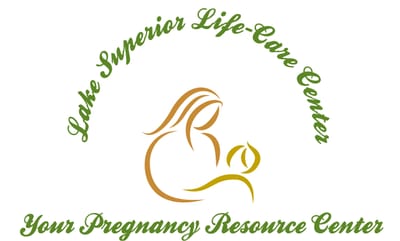Your Options

OPTION: ABORTION You Have A Right To Know The Facts About Abortion Abortion is not just a simple medical procedure. For many women, it is a life changing event with significant physical, emotional, and spiritual consequences. Most women who struggle with past abortions say that they wish they had been told all the facts about abortion.2 Complications of Abortion “In medical practice, there are few surgical procedures given so little attention and so underrated in its potential hazards as abortion. It is a commonly held view that complications are inevitable.” - Abortionist Warren Hern4 Short-Term Medical Risks of Abortion
You need not face this problem alone. There are people who care about you and your baby------people who will help you in this time of desperate need. 4
OPTION: ADOPTION 1. How can adoption be good for my baby and me? If you are not ready to be a parent, you can still give your baby the gift of life by choosing adoption. You can plan for your baby’s future by selecting a stable, loving family to care for your baby. After birth, you can see your baby, name your baby, and spend time with your baby. If you so choose, you may be able to get updates on your child’s progress and have ongoing visits throughout your child’s life while you continue your education or career goals. Finally, you can be proud that you chose life for your baby. 2. Can I choose a family for my baby? Yes! Most agencies have adoptive couples who come from a variety of backgrounds, and they have been screened and approved. There are additional options such as choosing a friend, or someone who has been recommended to you. Your agency will discuss these options with you. 3. How much contact can I have with my baby after birth and after adoption? You may have as much contact with your baby at the hospital as you desire. When planning your child’s adoption, you can choose an open adoption plan that allows ongoing visits with your child, or you can choose a less open adoption that keeps you informed about your child’s progress through letters and photos. Adoptive families respect your need to know that your child is loved and happy. If you prefer not to have any ongoing contact with your child and the adoptive family, confidential adoption plans are also possible. 4. How soon after birth does my baby go to the parents I choose? The timing of your child’s placement depends on three factors:
5. How much will my child know about me? That depends on what type of option plan you choose: open, semi-open, or confidential. Your agency will encourage you to provide your complete medical and social history for your child, no matter what type of adoption plan you make, and in some states, that is required. You may choose to share your identity and where you live with the adoptive family. If you’ve made an open adoption plan, you may have ongoing, direct contact with your child and the adoptive family. The information your child will know about the birthfather depends on his relationship with you and your counselor. Most birthfathers give their complete medical and social history, recognizing how important it is for the child. In some cases, the only information available about the birthfather is what the birthmother provides. 6. What rights does the birthfather have? Both you and the birthfather have rights. If you disagree about adoption or you no longer have a relationship with him, your agency will work with the birthfather and/or the courts to determine if his rights can be terminated. However, in Minnesota there is a Putative Father's Adoption Registry that gives them the option to register and participate in decisions regarding the adoption from conception until 30 days after birth. 7. Can my child find me if he or she wants to search someday? The law in your state determines when and how your child may access the information in the adoption file. Your caseworker will explain the current laws as they apply to your adoption plan. 8. How can I be sure my child will be well cared for? Adoptive families approved by your agency must meet standards that are shared with you. Your agency will make every attempt to complete a thorough assessment of potential adoptive families. Prior to finalizing the adoption, a caseworker will make home visits to ensure the child’s well-being. In an open adoption, you will see for yourself how well your child is cared for and how much your child is loved. 9. Do I need an attorney or do I pay my agency to assist me with the adoption? You do not need an attorney and there are no costs to you. The adoption agency will handle all the legal details for you and the birthfather. 10. Does the adoption agency offer assistance with medical and living expenses while I am making an adoption plan? Assistance with medical and living expenses is available through many agencies. For details about how your agency can help you in your particular circumstances, contact your caseworker.2 1. How can adoption be good for my baby and me? If you are not ready to be a parent, you can still give your baby the gift of life by choosing adoption. You can plan for your baby’s future by selecting a stable, loving family to care for your baby. After birth, you can see your baby, name your baby, and spend time with your baby. If you so choose, you may be able to get updates on your child’s progress and have ongoing visits throughout your child’s life while you continue your education or career goals. Finally, you can be proud that you chose life for your baby. 2. Can I choose a family for my baby? Yes! Most agencies have adoptive couples who come from a variety of backgrounds, and they have been screened and approved. There are additional options such as choosing a friend, or someone who has been recommended to you. Your agency will discuss these options with you. 3. How much contact can I have with my baby after birth and after adoption? You may have as much contact with your baby at the hospital as you desire. When planning your child’s adoption, you can choose an open adoption plan that allows ongoing visits with your child, or you can choose a less open adoption that keeps you informed about your child’s progress through letters and photos. Adoptive families respect your need to know that your child is loved and happy. If you prefer not to have any ongoing contact with your child and the adoptive family, confidential adoption plans are also possible. 4. How soon after birth does my baby go to the parents I choose? The timing of your child’s placement depends on three factors:
5. How much will my child know about me? That depends on what type of option plan you choose: open, semi-open, or confidential. Your agency will encourage you to provide your complete medical and social history for your child, no matter what type of adoption plan you make, and in some states, that is required. You may choose to share your identity and where you live with the adoptive family. If you’ve made an open adoption plan, you may have ongoing, direct contact with your child and the adoptive family. The information your child will know about the birthfather depends on his relationship with you and your counselor. Most birthfathers give their complete medical and social history, recognizing how important it is for the child. In some cases, the only information available about the birthfather is what the birthmother provides. 6. What rights does the birthfather have? Both you and the birthfather have rights. If you disagree about adoption or you no longer have a relationship with him, your agency will work with the birthfather and/or the courts to determine if his rights can be terminated. However, in Minnesota there is a Putative Father's Adoption Registry that gives them the option to register and participate in decisions regarding the adoption from conception until 30 days after birth. 7. Can my child find me if he or she wants to search someday? The law in your state determines when and how your child may access the information in the adoption file. Your caseworker will explain the current laws as they apply to your adoption plan. 8. How can I be sure my child will be well cared for? Adoptive families approved by your agency must meet standards that are shared with you. Your agency will make every attempt to complete a thorough assessment of potential adoptive families. Prior to finalizing the adoption, a caseworker will make home visits to ensure the child’s well-being. In an open adoption, you will see for yourself how well your child is cared for and how much your child is loved. 9. Do I need an attorney or do I pay my agency to assist me with the adoption? You do not need an attorney and there are no costs to you. The adoption agency will handle all the legal details for you and the birthfather. 10. Does the adoption agency offer assistance with medical and living expenses while I am making an adoption plan? Assistance with medical and living expenses is available through many agencies. For details about how your agency can help you in your particular circumstances, contact your caseworker.2 (Bethany Christian Services. www.bethany.org) ADOPTION AND PARENTING DIFFERENCES AND SIMILARITIES
Sources Cited 1. Adoption & Abortion: Differences and Similarities. (1997). Bethany Christian Services. www.bethany.org 2. Before You Decide. (2003). Care Net 3. If You Are Pregnant: Information on Fetal Development, Abortion and Alternatives. (2004). Minnesota Department of Health. www.health.state.mn.us 4. Schieber, M. E., You Have A Right To Know. (2001). Easton Publishing Company, Inc. www.eastonpublishing.com | |||||||||||||||||||||||||||||||||||||||||||||||||||||||||||||



